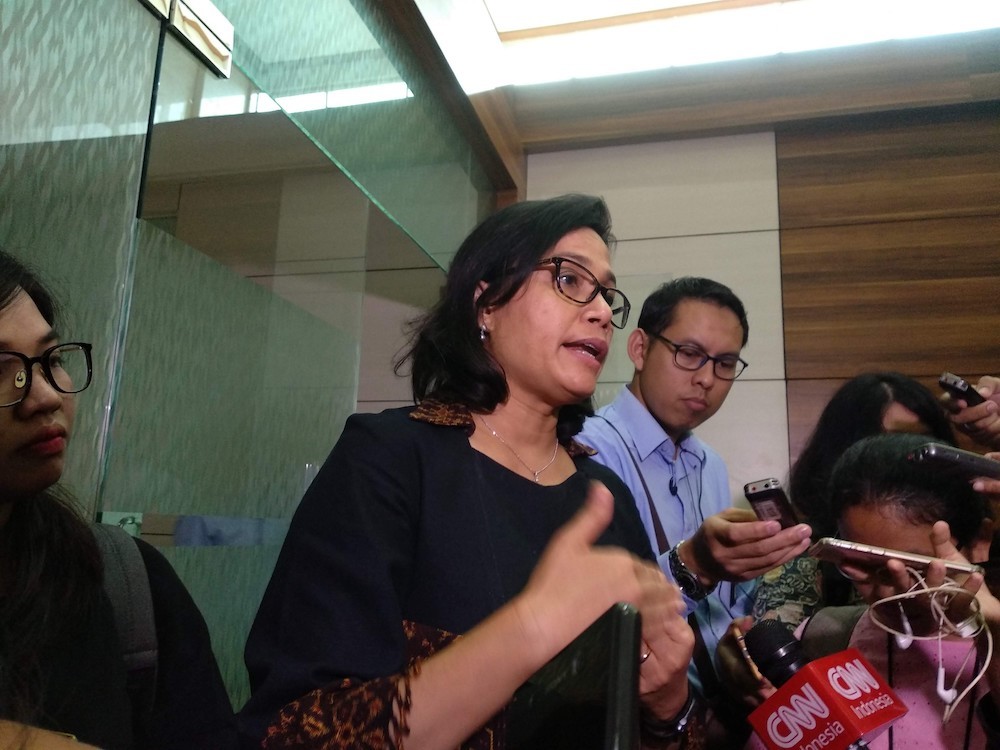Popular Reads
Top Results
Can't find what you're looking for?
View all search resultsPopular Reads
Top Results
Can't find what you're looking for?
View all search resultsHouse passes non-tax state revenue bill
The House of Representatives officially passed the non-tax state revenue (PNBP) bill into law during a plenary meeting on Thursday.
Change text size
Gift Premium Articles
to Anyone
T
he House of Representatives officially passed the non-tax state revenue (PNBP) bill into law during a plenary meeting on Thursday.
Therefore, the country will have a new law replacing PNBP Law No. 20/1997, which has been implemented for 21 years.
Finance Minister Sri Mulyani said a new law was required to provide strong legal basis for several types of non-tax objects that had yet been accommodated in the previous law.
Sri added that the law was also necessary to improve the late or unpaid non-tax objects and regulate the direct use of non-tax revenue that was used outside the mechanism of the state budget.
“The bill is intended to improve the government’s services that is clean, professional, transparent, accountable, and applies good governance," she said on Thursday.
According to the bill, there are several important points to be highlighted, including strengthening the authority of the finance minister to decide the amount of non-tax tariff.
With the new law, the tariff can be regulated through a finance ministry regulation rather than a government regulation.
Sanctions for those non-tax payers violating the law is also tightened by means of fourfold penalty sanctions of the amount of non-tax arrears and a longer prison sentence of up to six years.
Also, Article 13 regulates a zero tariff that can be set under special circumstances.
Golkar party politician M. Misbakhun, a member of the House Commission XI overseeing financial affairs, was quoted by kontan.co.id as saying that the zero tariff for organizing social and religious activities could be set considering the circumstances beyond the ability of those non-tax payers, including less fortunate people, outstanding students and micro, small, medium enterprises. (sau/dmr)










